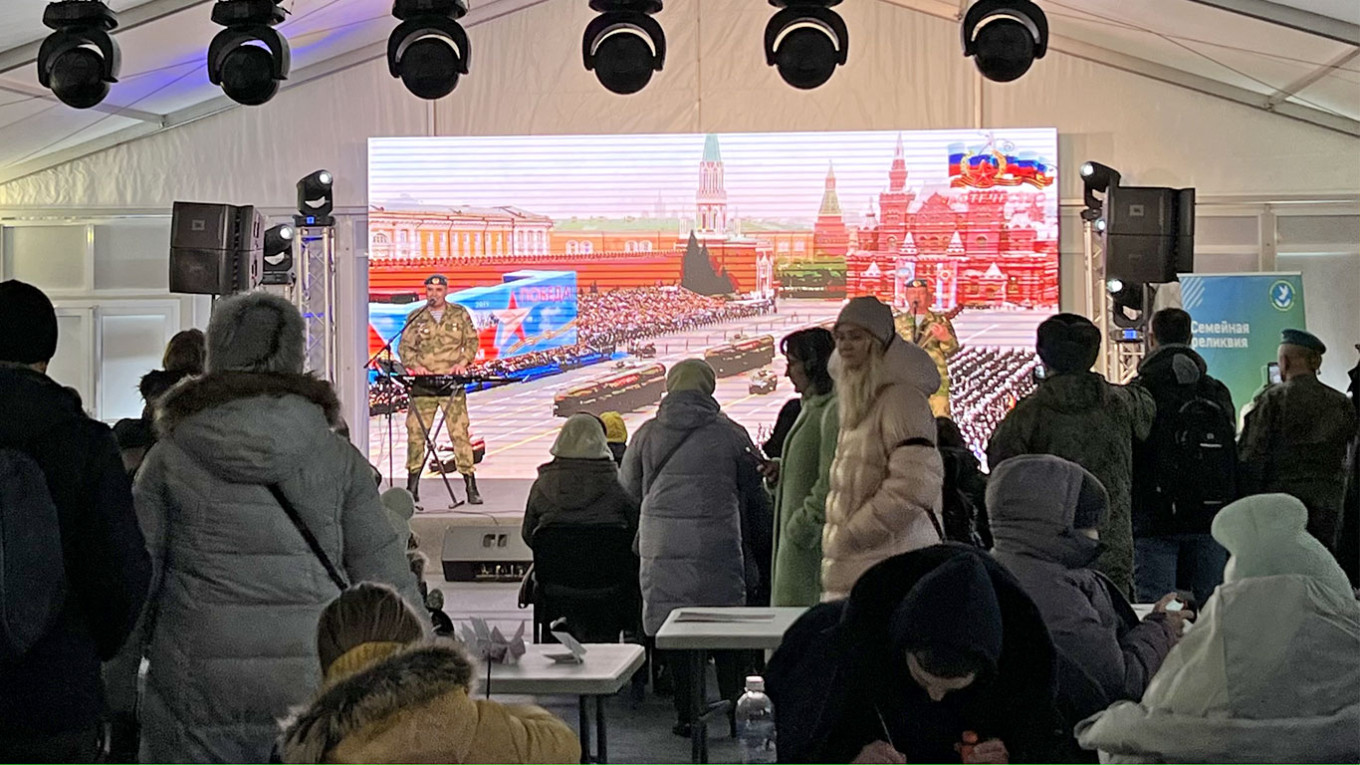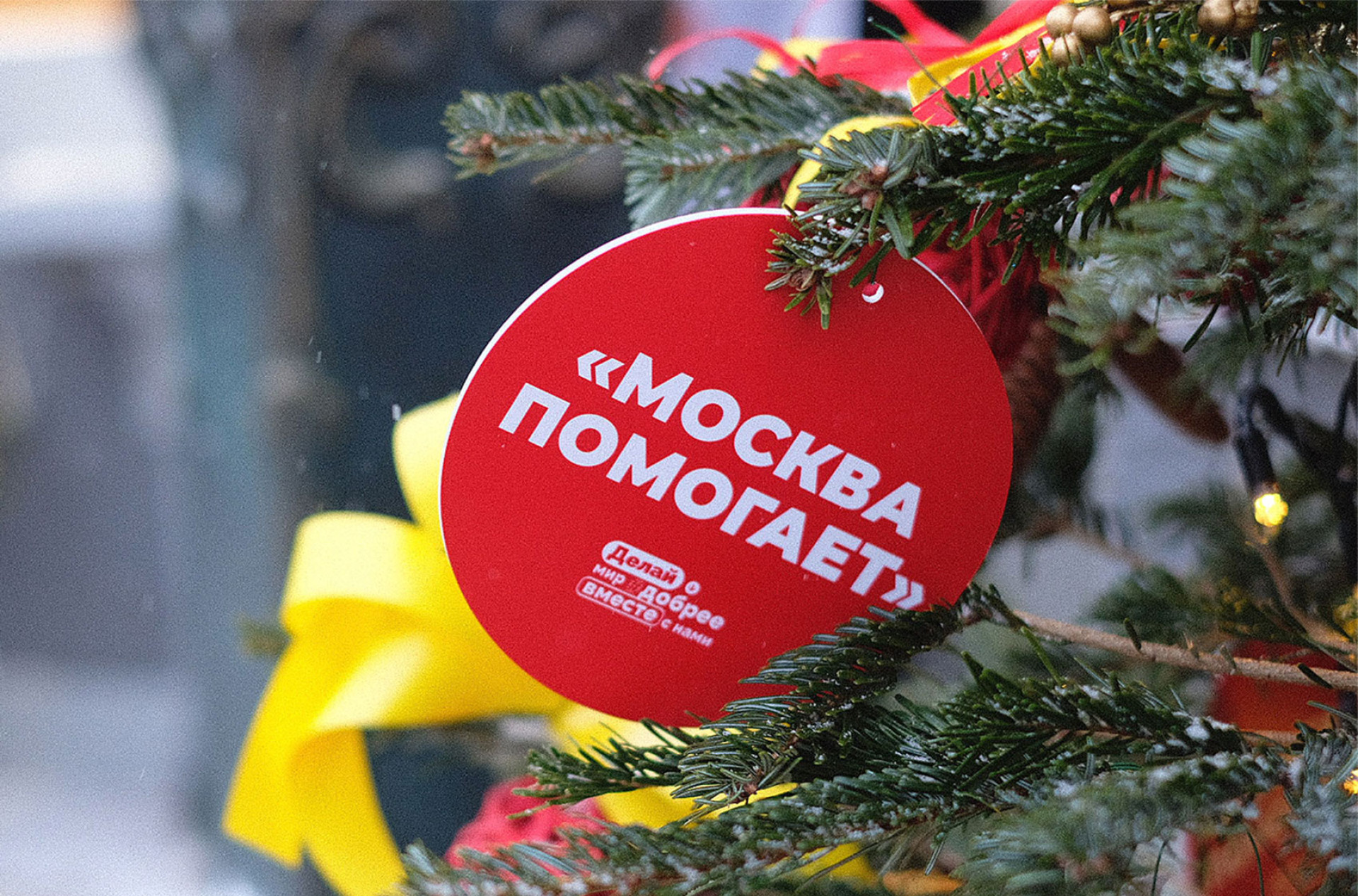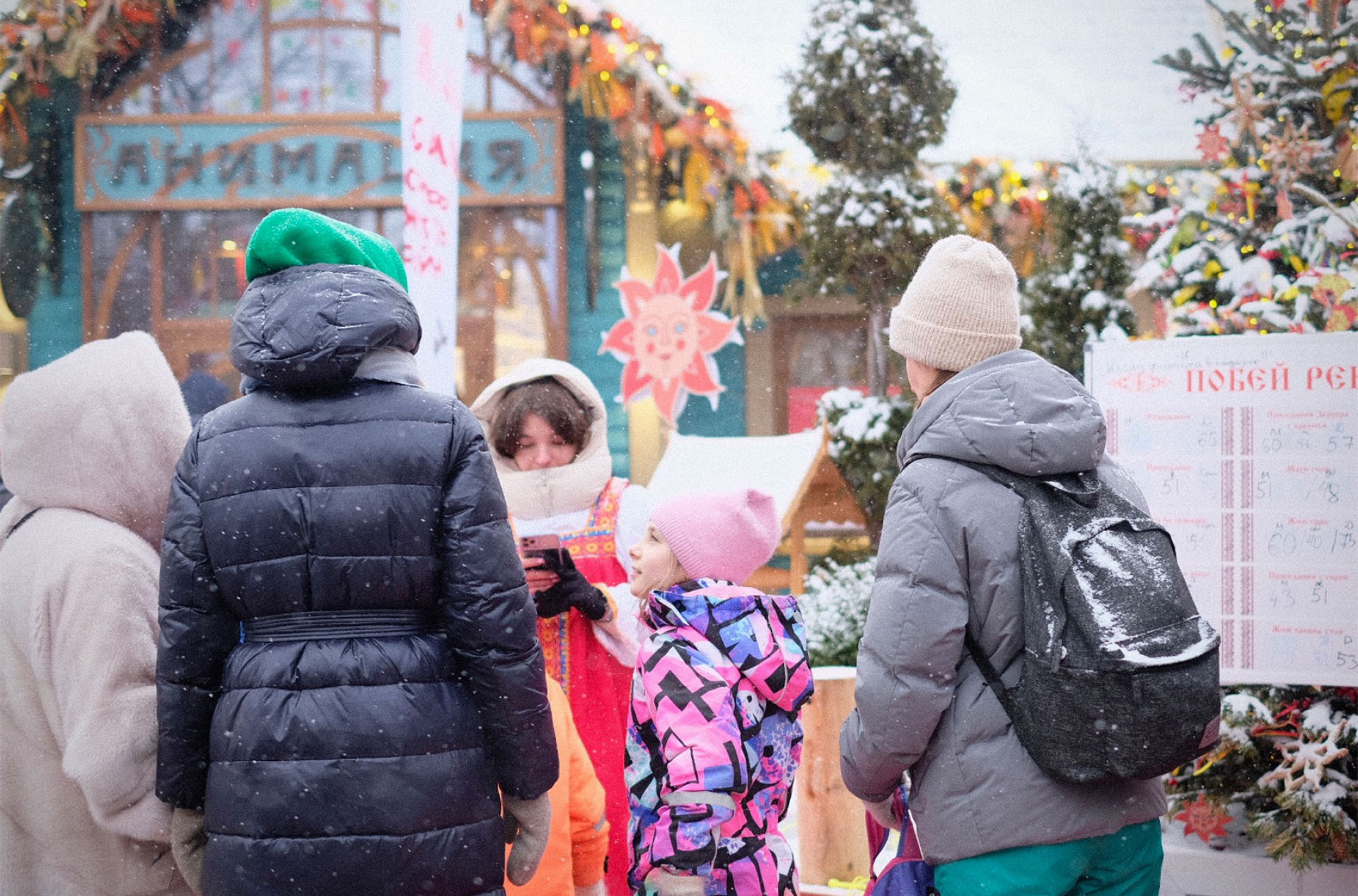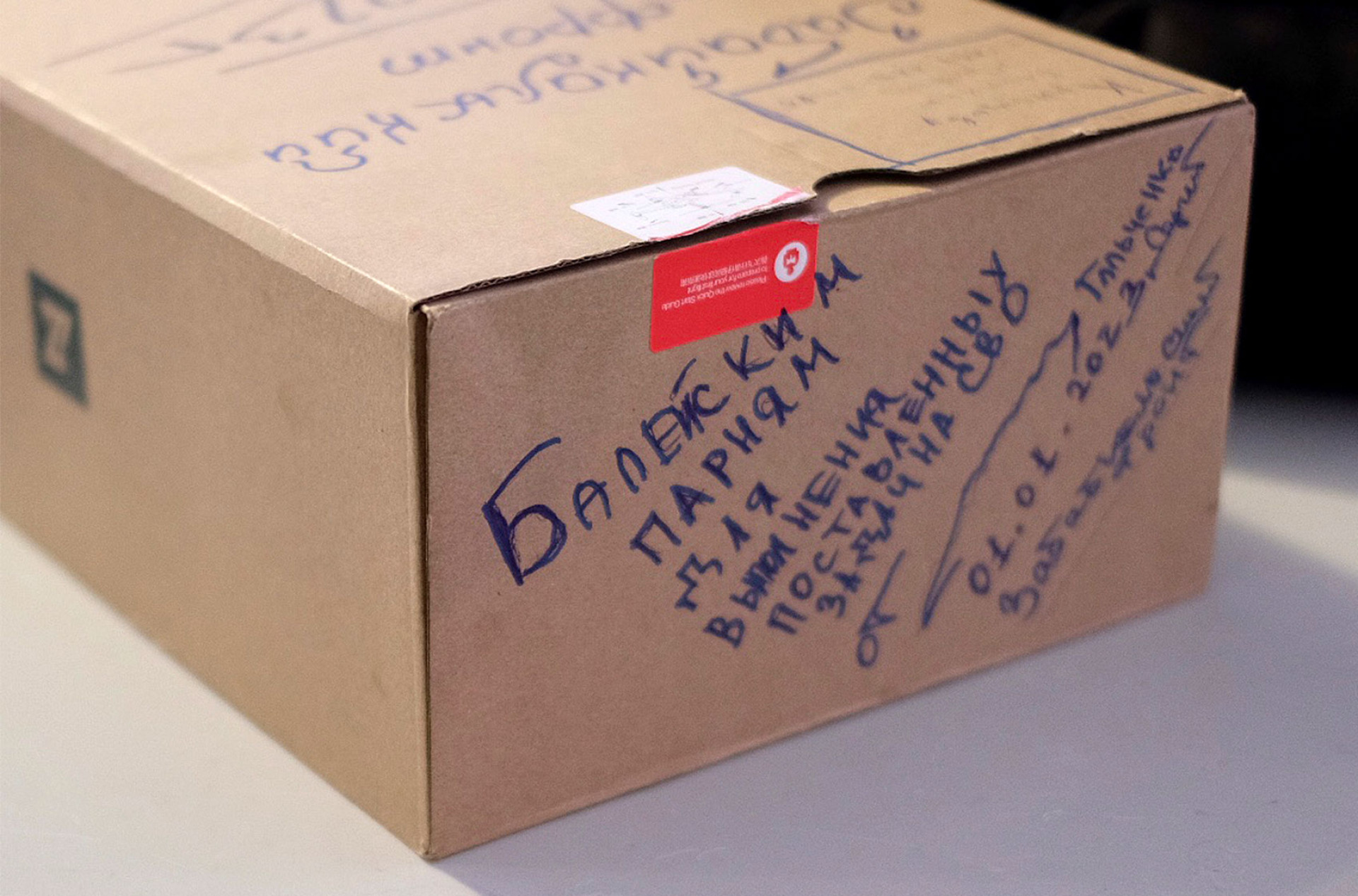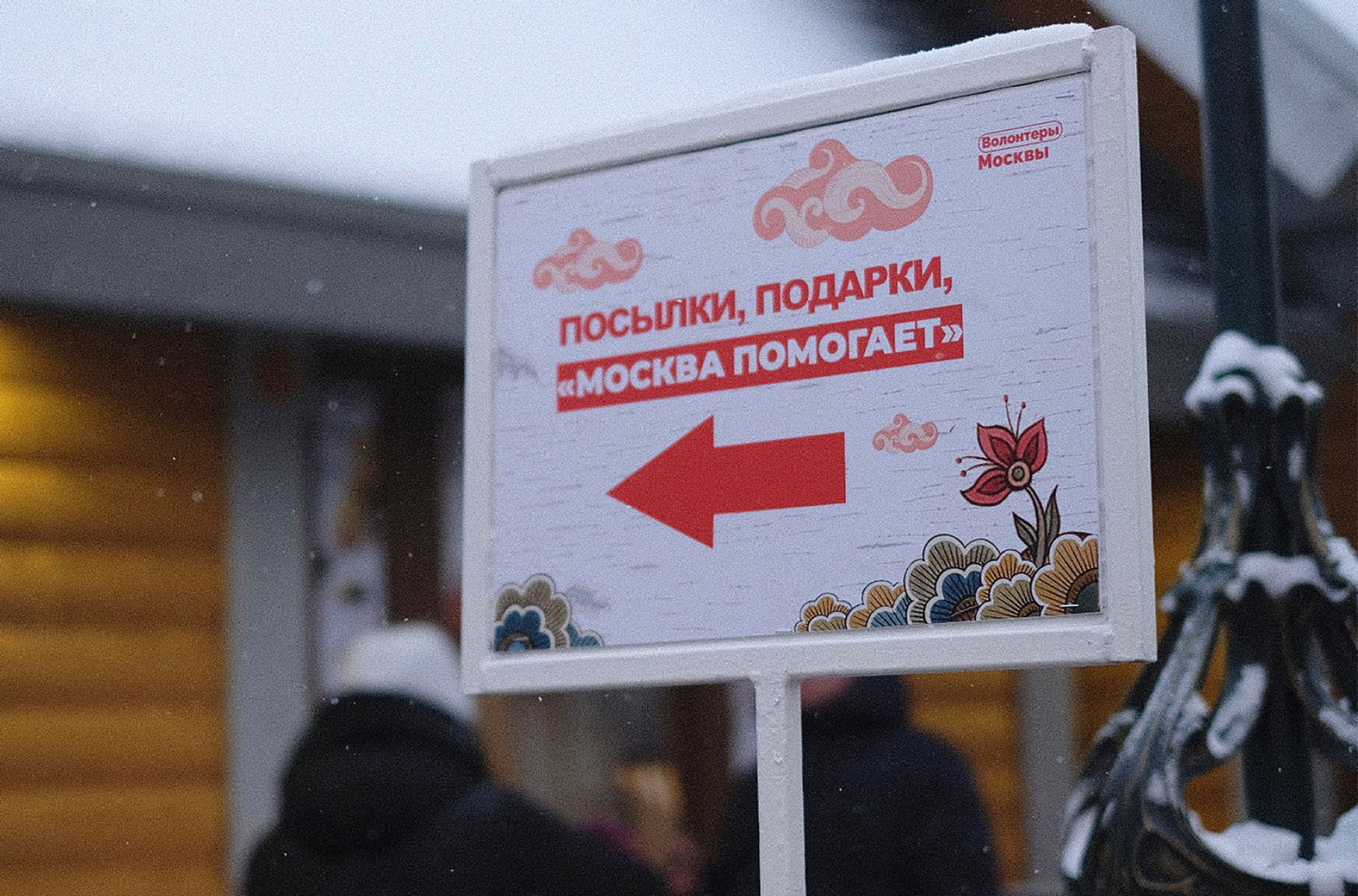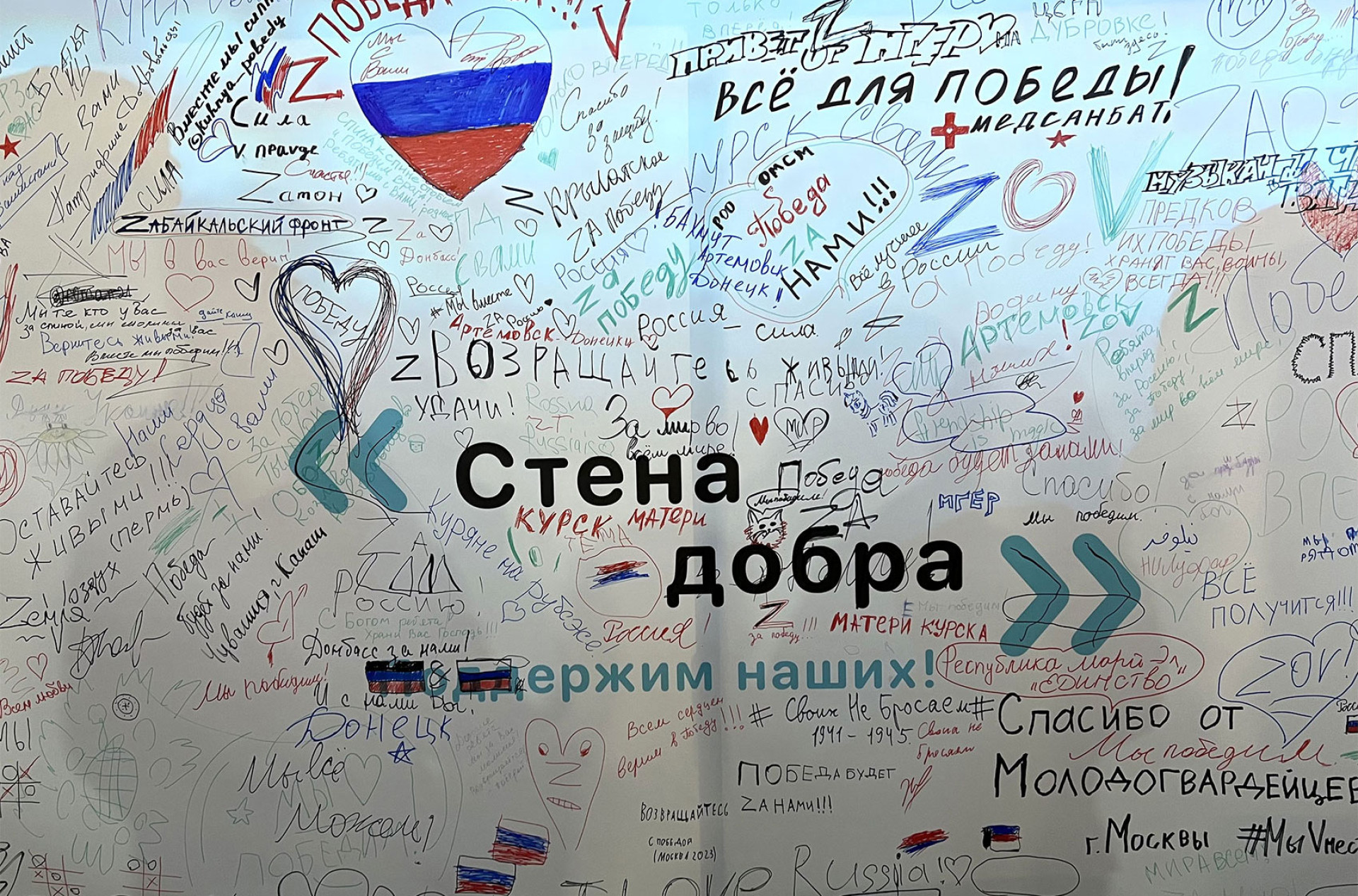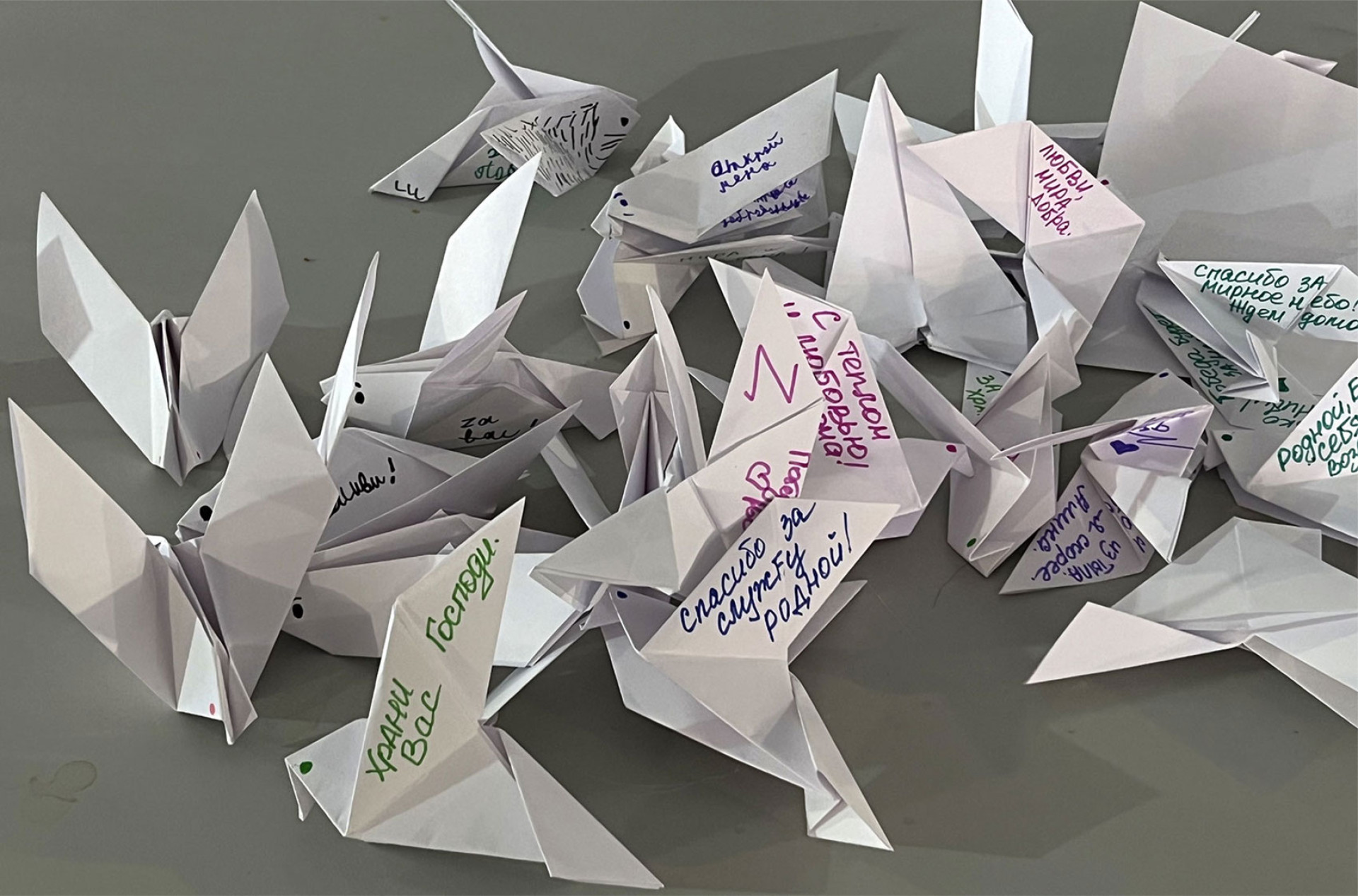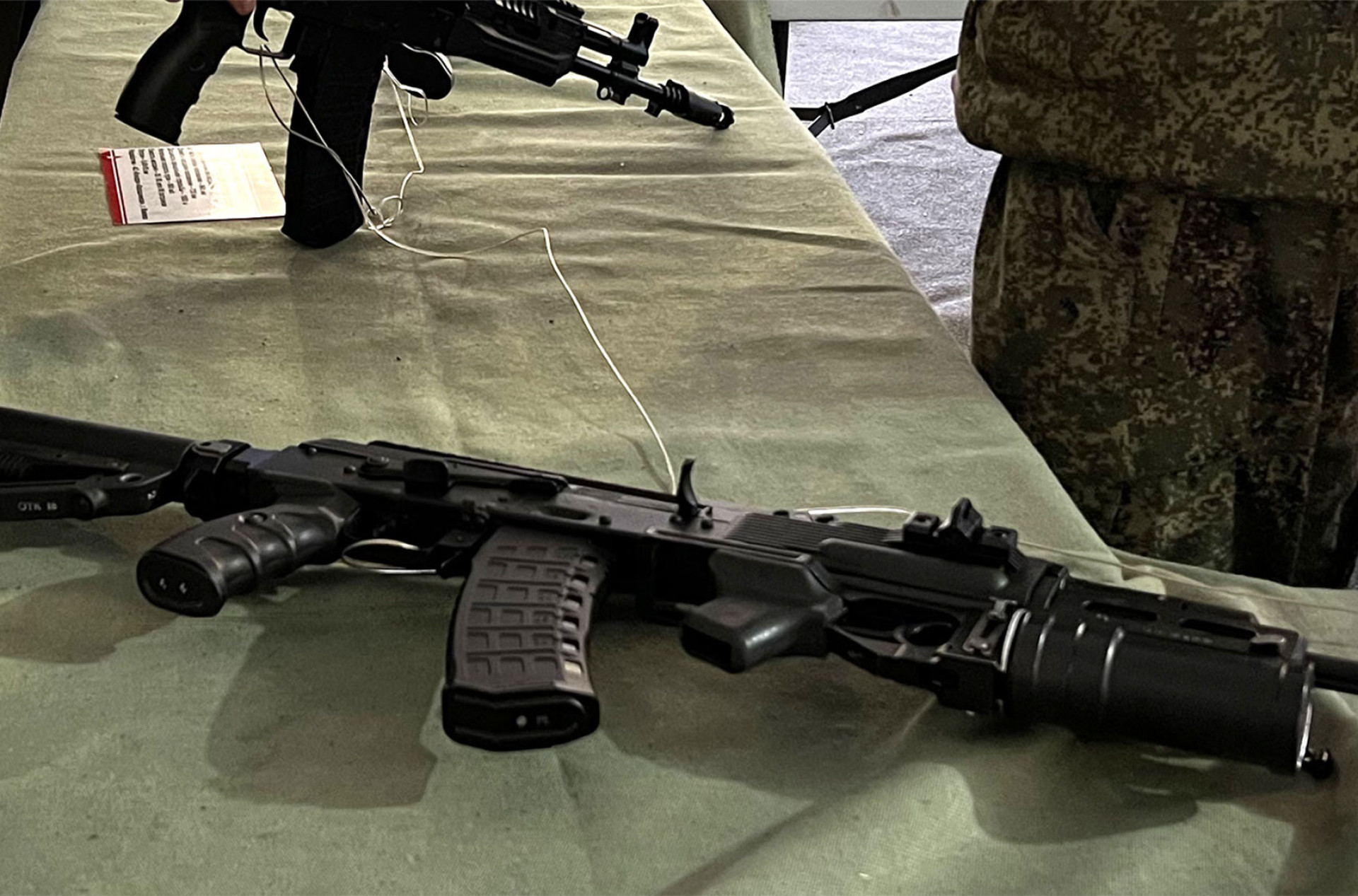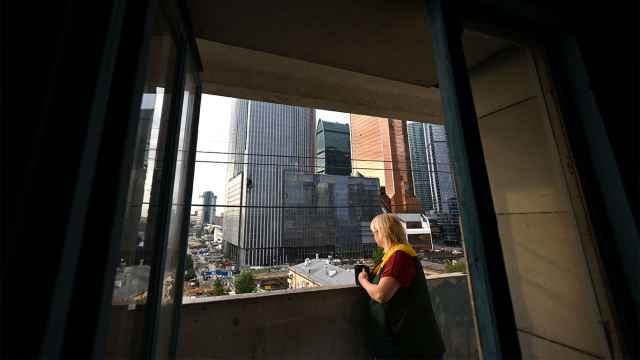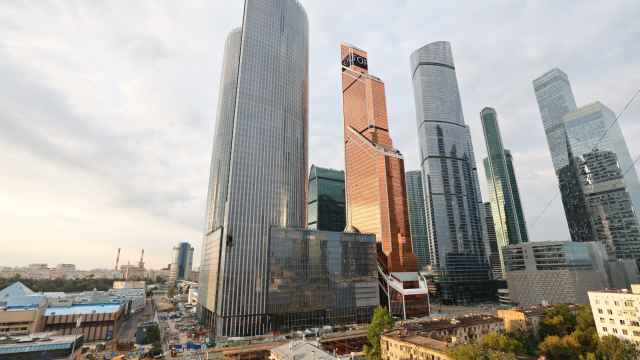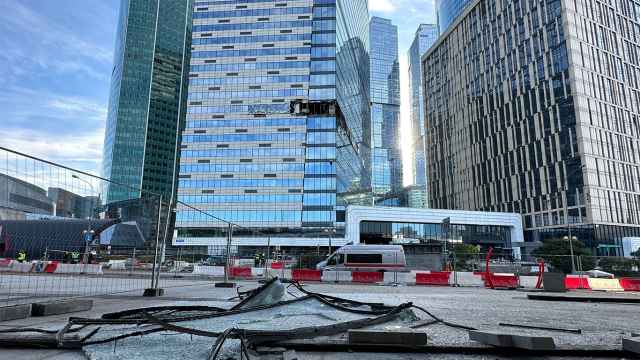MOSCOW — As the first anniversary of Russia’s invasion of Ukraine approaches, life in the capital largely goes on as usual, with most Muscovites saying that the dominant mood is one of indifference to the ongoing fighting.
“I don’t really feel that there is a war going on,” said a Muscovite in his 30s who spoke to a Moscow Times reporter in the city center earlier this week.
“One can easily adapt to any circumstances — the longer this conflict goes on, the more people accept the situation.”
Apart from scattered billboards in support of the Russian Armed Forces and a handful of shuttered — or renamed — Western brand stores, the capital offers few obvious signs of the war raging just over 500 kilometers away in which tens of thousands of people have been killed and Ukrainian towns and cities all-but razed to the ground.
No significant opposition protests are expected to take place on the anniversary of the invasion Friday.
“Generally speaking, it’s not our concern,” Svetlana, a pensioner in her 60s, told The Moscow Times when asked about the war. She added she was “not interested in politics.”
Like others interviewed for this article, Svetlana requested anonymity to speak freely.
While opinion polls conducted by both independent and state-run agencies suggest about 75% of Russians support the war, experts caution against the distorting effect of the country’s political crackdown and draconian wartime censorship laws that have seen dozens handed lengthy jail terms for opposing the invasion.
One of the few acknowledgements of the war’s upcoming anniversary were to be found in central Moscow’s Gorky Park, which has traditionally been associated with the capital’s trendy young people.
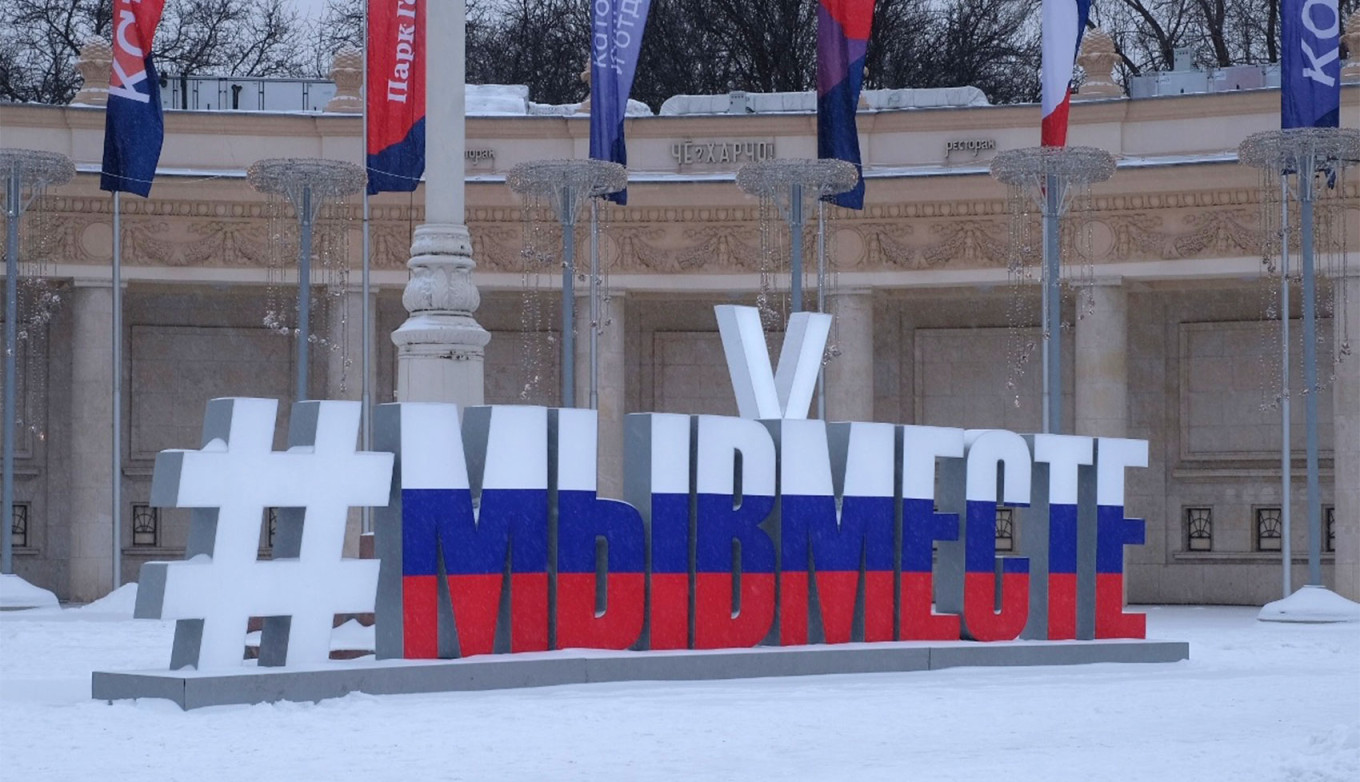
Alongside celebrations of the traditional Maslenitsa folk festival, visitors to Gorky Park could also stop by pro-war stands to record a video message for Russian soldiers on the frontlines or make donations to the Armed Forces.
While The Moscow Times didn't see any visitors sending such gifts on Sunday afternoon, staff at the stand said that “many people” had already recorded video messages.
Under a nearby tent, just a few dozen people had gathered to watch a pro-war concert, where they listened to military songs and wrote postcards to Russian soldiers.
Despite such events — which are all organized by City Hall — visible displays of support for the invasion in this city of almost 12 million people remain rare.
Indeed, empty stores and a burgeoning number of pawn shops on the streets of Moscow are a far more obvious sign of the fallout from the war, which included the exit of major Western companies and Western sanctions.
A number of Muscovites told The Moscow Times that they were worried about the economy and had noticed significant price rises on everyday goods which made life more difficult.
In contrast, others said they were still able to buy sanctioned Western goods — which are imported via third countries — and had retained their pre-war living standards.
Perhaps the most concerning consequence of the war for Muscovites has been the installation of air defense systems, which appeared in the Russian capital last month.
Even still, most Russians view the war as “something that does not directly affect them,” said Denis Volkov, the head of the independent Levada Center pollster.
“It’s a coping mechanism to adapt to stress, especially when people think that they cannot change anything,” Volkov, who unlike many other independent experts has remained in Moscow since the invasion, said in a phone interview.
In general, according to Volkov, the authorities have been successful in casting the war as a broader conflict with Western countries seeking to weaken Russia.
“Of course, I feel sorry for them,” retiree Svetlana, who supplements her pension with cleaning jobs, said when she was asked about those living in Ukraine.
“But I don’t really like Ukrainians.”
While the war appears not to have made a significant impact on day-to-day life, some major events during the conflict have sparked turmoil.
Particularly disruptive was the draft of hundreds of thousands of men into the Armed Forces during Russia's “partial” mobilization in September and October.
While poorer Russian regions — as well as the country’s ethnic republics — bore the brunt of mobilization, thousands were also called up from large cities, including Moscow.
“Of course, if they took your son away, you’d go crazy,” another pensioner strolling in downtown Moscow told The Moscow Times.
According to Levada Center’s Volkov, the mobilization was one of the events that brought Russians face to face with the reality of the war — albeit briefly.
“Before mobilization in September, people used to say: ’Volunteers and professionals are fighting there, thank God, it is not us, let them fight, the authorities know better, we are ordinary people. It’s bad that people are dying, but it probably couldn’t have been avoided’,” Volkov told The Moscow Times.
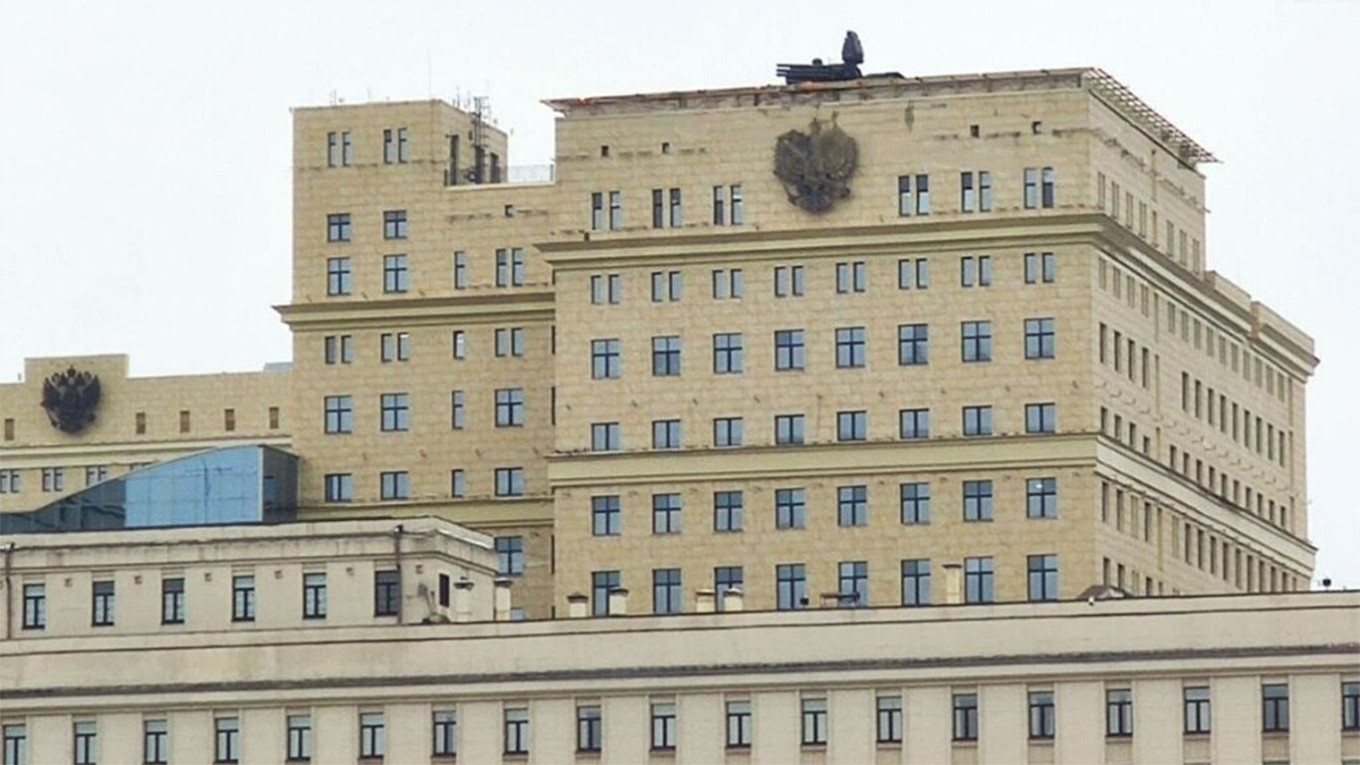
Mobilization also exacerbated an exodus — estimated at hundreds of thousands — from the country, as people fled to avoid political repression or being sent to the front.
The consequences of people fleeing abroad is particularly noticeable in large cities like Moscow, where those with the disposable income and job flexibility to emigrate at short notice were concentrated.
“For me, the biggest and most significant change is that all of my close friends have left Russia — it feels like the whole middle class has gone,” said one Muscovite.
However, by the end of last year, the impact of mobilization appeared to have faded and many people went back to ignoring the ongoing war.
Even major military reversals, like the Russian army’s retreat from Ukraine’s Kharkiv region and the southern city of Kherson, barely seemed to register.
Beneath the surface, some Muscovites — albeit a minority — struggle to cope with daily reports of the death and destruction in Ukraine, including apparent atrocities committed by Russian soldiers in places like Bucha and Mariupol.
“I put my life on pause when the war started,” one woman sitting in a cafe in central Moscow said in an interview this week.
“I’m still trying to learn how to live in the current situation.”
A Message from The Moscow Times:
Dear readers,
We are facing unprecedented challenges. Russia's Prosecutor General's Office has designated The Moscow Times as an "undesirable" organization, criminalizing our work and putting our staff at risk of prosecution. This follows our earlier unjust labeling as a "foreign agent."
These actions are direct attempts to silence independent journalism in Russia. The authorities claim our work "discredits the decisions of the Russian leadership." We see things differently: we strive to provide accurate, unbiased reporting on Russia.
We, the journalists of The Moscow Times, refuse to be silenced. But to continue our work, we need your help.
Your support, no matter how small, makes a world of difference. If you can, please support us monthly starting from just $2. It's quick to set up, and every contribution makes a significant impact.
By supporting The Moscow Times, you're defending open, independent journalism in the face of repression. Thank you for standing with us.
Remind me later.



